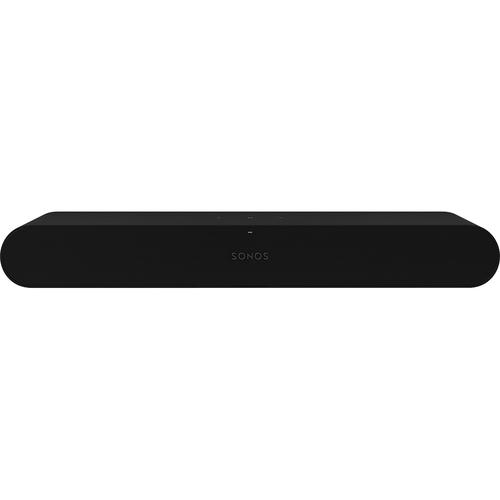
Looking to upgrade your TV's built-in speakers? You're not alone. Today we're comparing two very different approaches to better sound: the compact Sonos Ray ($279) and the feature-packed JBL Bar 1000 ($1,139). Let's explore how these soundbars can transform your home entertainment experience, and which one might be right for you.
Before diving into the specifics, let's talk about what soundbars actually do. They're designed to solve a common problem: modern TVs are too thin to house decent speakers. While this gives us beautifully slim displays, it often results in thin, underwhelming sound that can make dialogue hard to understand and action scenes feel flat.
Soundbars offer a simple solution by providing better speakers in a compact package that sits below or in front of your TV. They range from basic stereo units to complex surround sound systems that can fill a room with immersive audio.
The Sonos Ray and JBL Bar 1000 represent opposite ends of the soundbar spectrum. Released in 2022, the Ray is Sonos's entry-level offering, focused on simplicity and quality stereo sound. The JBL Bar 1000, also from 2022, is a premium system that aims to deliver a true home theater experience with all the bells and whistles.
Your room size and layout play a crucial role in choosing between these options. The Sonos Ray works best in small to medium-sized rooms, particularly bedrooms or apartments where space is at a premium. Its compact design (22 inches wide) fits easily under most TVs without dominating the space.
The JBL Bar 1000, with its 7.1.4 channel configuration (7 surround channels, 1 subwoofer, 4 height channels), needs more room to shine. Its detachable rear speakers and separate subwoofer require thoughtful placement to create that immersive sound bubble. I've found it performs best in rooms at least 12x15 feet, where the sound has space to properly disperse.
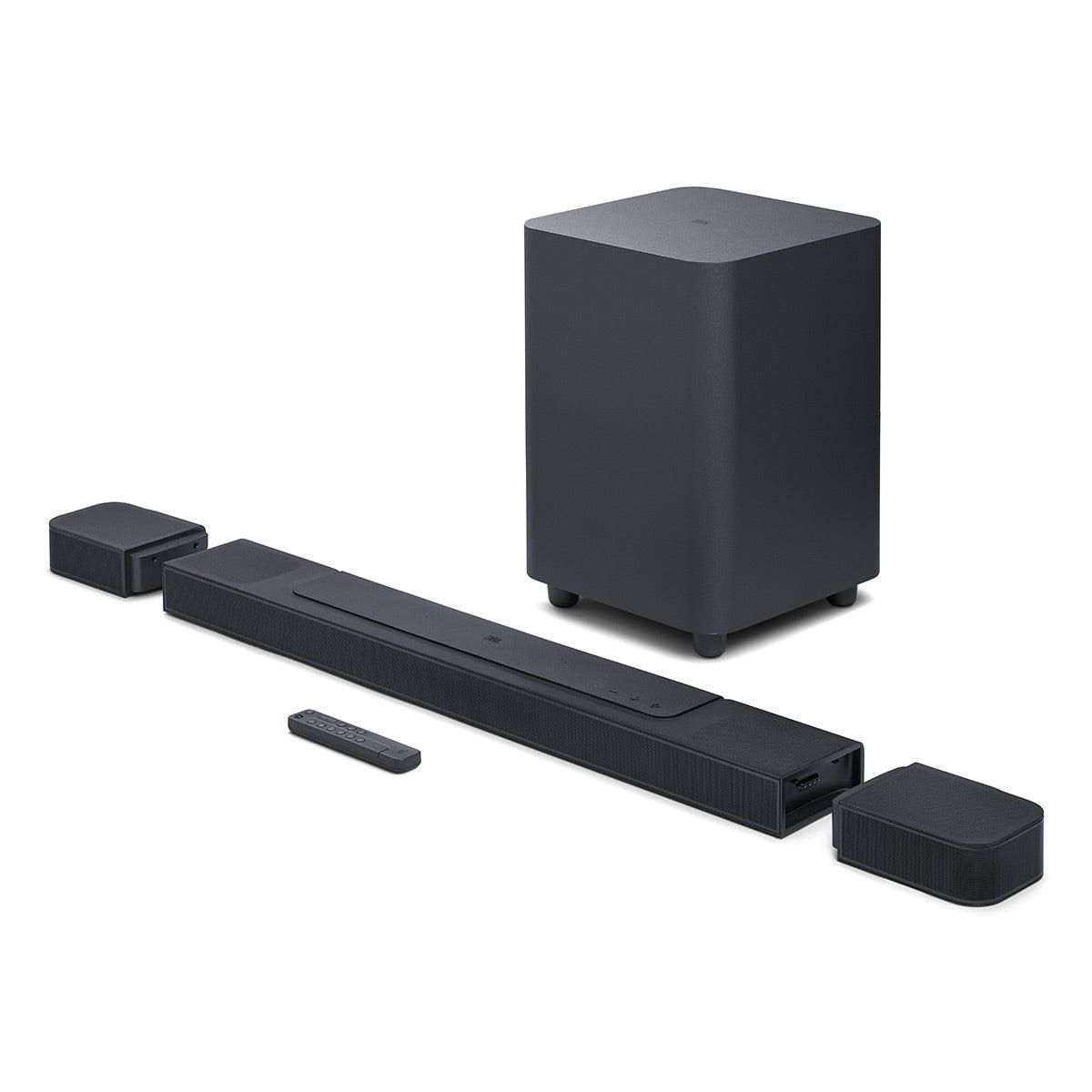
The Ray keeps things simple with a 2.0 channel setup (left and right speakers). While it lacks fancy features like Dolby Atmos (which adds height effects to create a more three-dimensional sound), it excels at its core mission: delivering clear dialogue and balanced sound.
Key features include:
Having tested the Ray in both a bedroom and small living room, I've found its dialogue clarity particularly impressive. TV shows and movies benefit from crisp, clear vocals that stand out from background sounds - something many entry-level soundbars struggle with.
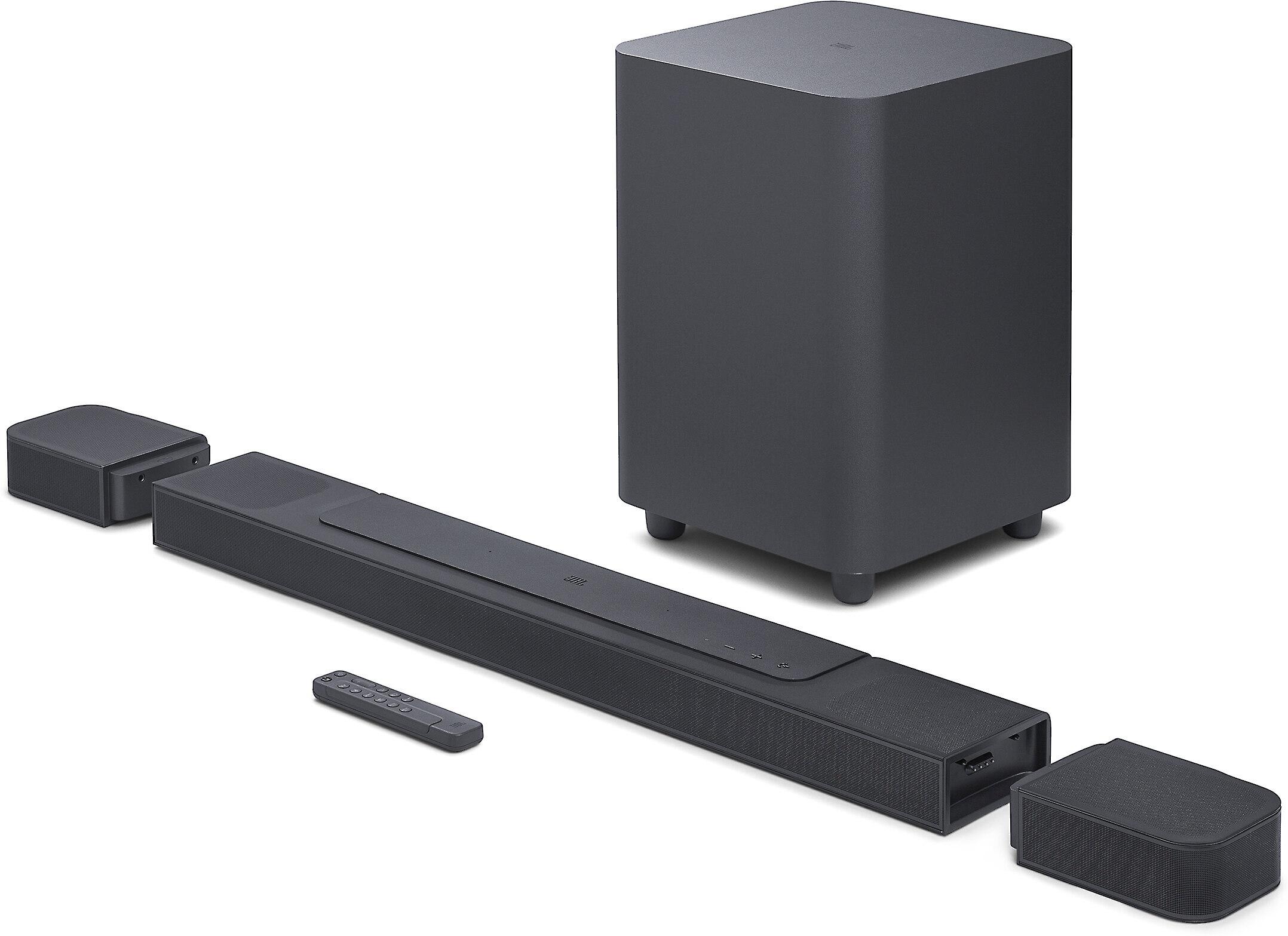
This system is built for home theater enthusiasts who want it all. The 7.1.4 setup includes:
The Bar 1000's standout feature is its detachable rear speakers. They can be charged on the main unit and placed anywhere in the room without wires, offering true surround sound without permanent installation. This flexibility is game-changing for those who want surround sound without committing to fixed speaker positions.
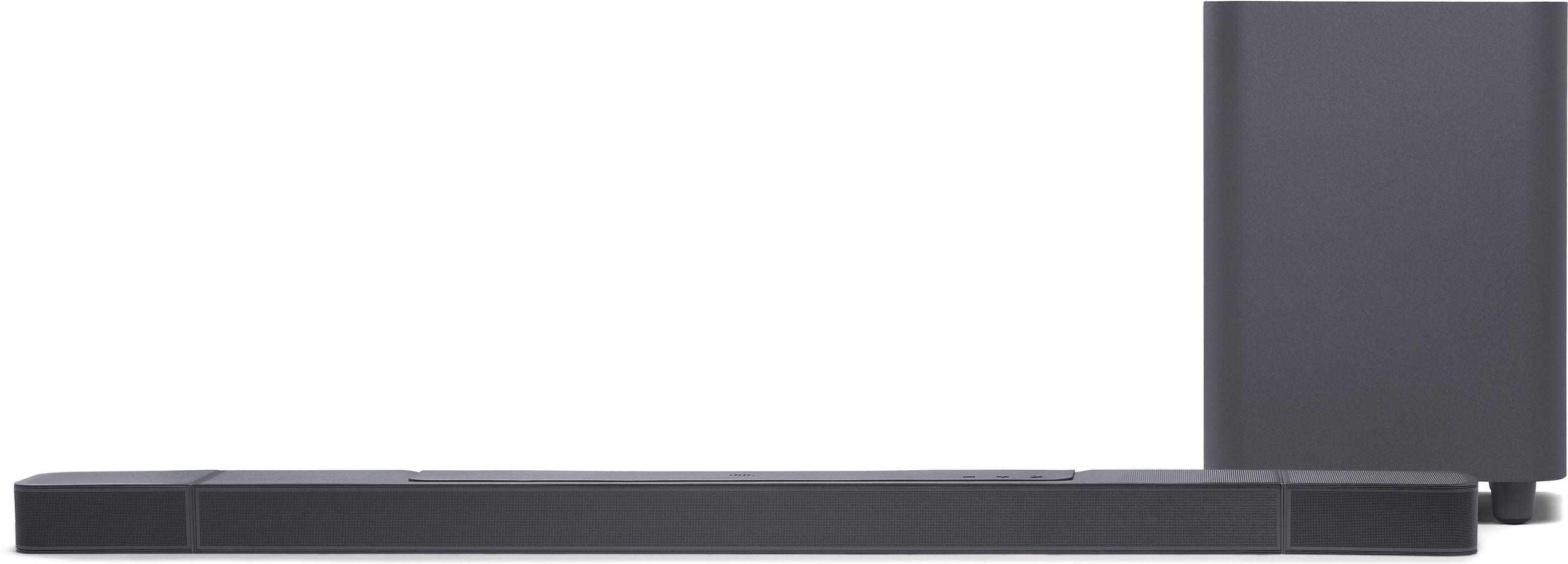
The Sonos Ray handles dialogue exceptionally well, making it ideal for TV shows and dialogue-heavy content. Action scenes have decent impact, though you'll miss the deep rumble that a dedicated subwoofer provides. It's a significant upgrade from TV speakers, but don't expect earth-shattering explosions.
The JBL Bar 1000 delivers a truly cinematic experience. Its Dolby Atmos support means you'll hear helicopters fly overhead and rain falling from above. The dedicated subwoofer adds substantial weight to explosions and music, while the rear speakers create genuine surround effects. When watching films like "Dune" or "Top Gun: Maverick," the difference is dramatic.
Both systems handle music well, but in different ways. The Ray benefits from Sonos's music streaming expertise, offering excellent stereo separation and balanced sound. It's particularly good with vocal-focused music and acoustic performances.
The Bar 1000 offers more power and range, with its subwoofer providing deep bass for electronic music and rock. However, some might find its surround processing unnecessary for music listening.
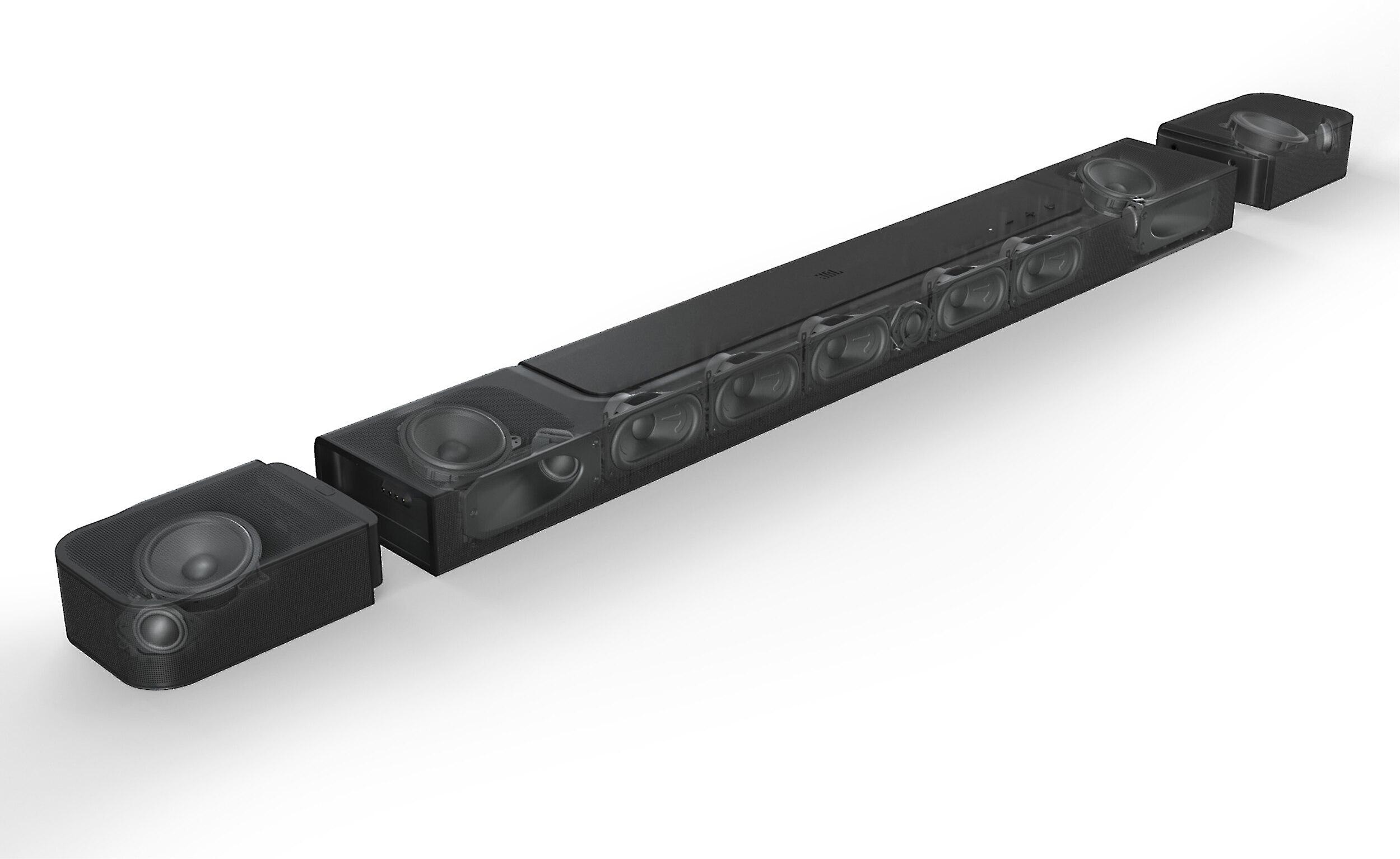
The Ray's setup takes minutes: connect the optical cable to your TV, download the Sonos app, and follow the instructions. Its simplicity is refreshing, though the lack of HDMI might frustrate some users.
The Bar 1000 requires more setup time to position all speakers and run room calibration. However, its multiple HDMI inputs and eARC support offer more flexibility for connecting gaming consoles and other devices directly.
The Ray's $279 price point makes it an excellent value for those wanting better TV sound without breaking the bank. It's also part of the Sonos ecosystem, meaning you can add more speakers (including a subwoofer) later.
At $1,139, the Bar 1000 represents a significant investment. However, it includes everything needed for a complete home theater audio system, potentially replacing the need for a separate receiver and speakers.
Choose the Sonos Ray if:
Choose the JBL Bar 1000 if:
Both products excel at their intended purposes, but they serve different needs. The Sonos Ray offers impressive performance for its size and price, while the JBL Bar 1000 delivers a premium home theater experience with modern conveniences like detachable speakers and Dolby Atmos support.
Remember, the best choice depends on your specific needs, room size, and how you plan to use the system. Consider starting with the Ray if you're unsure - you can always expand your system later as your needs grow.
| Sonos Ray ($279) | JBL Bar 1000 ($1,139) |
|---|---|
| Audio Channels - Determines how immersive the sound experience can be | |
| 2.0 channels (basic stereo) | 7.1.4 channels (full surround with height) |
| Dolby Support - Affects compatibility with modern streaming content | |
| Basic Dolby Digital | Dolby Atmos and DTS:X (full 3D audio) |
| Total Power Output - Impacts maximum volume and room size coverage | |
| Not specified (suitable for small-medium rooms) | 880W (fills large rooms easily) |
| Subwoofer - Critical for deep bass in movies and music | |
| Optional purchase ($749 extra) | Included 10" wireless subwoofer |
| Connectivity - Determines how you can connect devices | |
| Optical only, Wi-Fi, no Bluetooth | HDMI eARC, 3 HDMI inputs, Bluetooth, Wi-Fi |
| Special Features - Adds flexibility and convenience | |
| Trueplay room tuning, expandable Sonos ecosystem | Detachable wireless rear speakers, room calibration |
| Size - Consider your available space | |
| 22" wide (compact and discrete) | 48" wide plus separate speakers (needs planning) |
| Setup Complexity - Impacts initial user experience | |
| Simple plug-and-play | More complex but flexible placement |
| Voice Enhancement - Helps with dialogue clarity | |
| Speech enhancement mode | PureVoice technology with dedicated processing |
| Smart Features - Enables streaming and control options | |
| AirPlay 2, Sonos app control | Chromecast, AirPlay 2, Alexa, Google Assistant |
The JBL Bar 1000 ($1,139) is significantly better for movies due to its 7.1.4 channel configuration and Dolby Atmos support. While the Sonos Ray ($279) provides good dialogue clarity, it lacks surround sound capabilities essential for an immersive movie experience.
Yes, but differently. The Sonos Ray can be paired with a Sonos Sub (sold separately for $749). The JBL Bar 1000 already includes a powerful 10-inch wireless subwoofer in its package.
The Sonos Ray is ideal for small apartments due to its compact 22-inch width and simple setup. The JBL Bar 1000 requires more space for optimal performance with its multiple speakers and subwoofer.
The JBL Bar 1000 uses HDMI eARC and includes multiple HDMI inputs. The Sonos Ray only uses optical audio connection, which may limit some advanced audio formats but works with virtually all TVs.
Both excel at dialogue clarity. The Sonos Ray uses Speech Enhancement technology, while the JBL Bar 1000 features PureVoice technology. Both will significantly improve dialogue compared to TV speakers.
Yes, both can stream music. The Sonos Ray uses Wi-Fi and AirPlay 2, while the JBL Bar 1000 adds Bluetooth, Chromecast, and voice assistant support.
For home theater enthusiasts, the JBL Bar 1000's Dolby Atmos support offers significantly more immersive sound, especially for movies and modern streaming content. However, the Sonos Ray's stereo performance is sufficient for casual viewing.
The Sonos Ray is easier to set up with a simple optical connection and straightforward app. The JBL Bar 1000 requires more setup time due to its multiple speakers and calibration process.
Both soundbars can be wall-mounted. However, the JBL Bar 1000's detachable rear speakers offer more placement flexibility for surround sound configuration.
Yes, both will work with any TV. The Sonos Ray needs an optical output, while the JBL Bar 1000 works best with HDMI eARC but can also use optical.
The JBL Bar 1000 is superior for gaming due to its surround sound capabilities, multiple HDMI inputs, and low latency through HDMI. The Sonos Ray, while functional, offers only basic stereo sound.
The Sonos Ray can be expanded within the Sonos ecosystem with additional speakers and a subwoofer. The JBL Bar 1000 comes complete but cannot be expanded further.
We've done our best to create useful and informative comparisons to help you decide what product to buy. Our research uses advanced automated methods to create this comparison and perfection is not possible - please contact us for corrections or questions. These are the sites we've researched in the creation of this article: techradar.com - soundandvision.com - youtube.com - appleinsider.com - youtube.com - sonos.com - cnet.com - howtogeek.com - pcrichard.com - en.community.sonos.com - epicsystems.tech - en.community.sonos.com - cepro.com - videoandaudiocenter.com - zdnet.com - jbl.com - jbl.com - pcrichard.com - rtings.com - d21buns5ku92am.cloudfront.net - ro.harmanaudio.com - target.com - harmanaudio.com - dell.com - mm.jbl.com - dolby.com - jbl.com.my - videoandaudiocenter.com